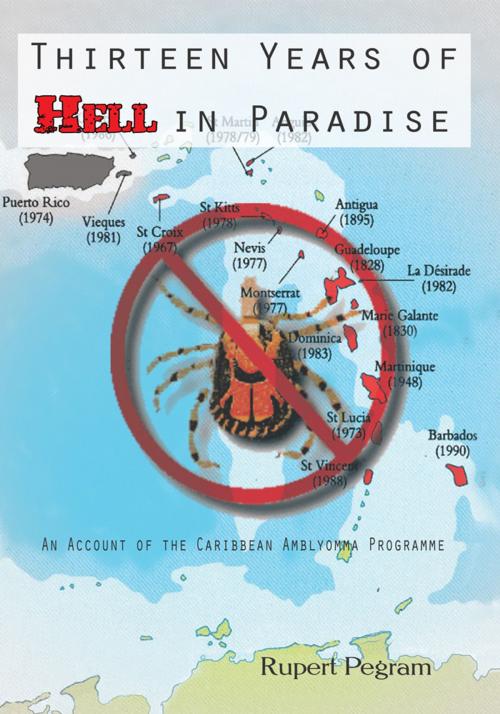Thirteen Years of Hell in Paradise
An Account of the Caribbean Amblyomma Programme
Nonfiction, Science & Nature, Nature, Insects & Spiders, Health & Well Being, Medical, Veterinary Medicine, Social & Cultural Studies, Political Science, Government, Public Policy| Author: | Rupert Pegram | ISBN: | 9781426944529 |
| Publisher: | Trafford Publishing | Publication: | November 29, 2010 |
| Imprint: | Trafford Publishing | Language: | English |
| Author: | Rupert Pegram |
| ISBN: | 9781426944529 |
| Publisher: | Trafford Publishing |
| Publication: | November 29, 2010 |
| Imprint: | Trafford Publishing |
| Language: | English |
After leading a regional office in Africa that studied ticks and tick-borne diseases, Rupert Pegram received a call in 1994 that changed his life. His higher ups wanted him to lead a new program in the Caribbean. The Caribbean Amblyomma Program, known as the CAP, sought to eliminate the Amblyomma tick from the Caribbean region. The stakes were high because ticks transmit terrible diseases. Today, the tropical pest introduced from Africa threatens to invade large areas of the south and central parts of North America. By learning about the progress, setbacks, political and financial constraints, and final heartbreak of failure in the Caribbean, the rest of world can discover how to fight the growing problem. Learn why the CAP program failed and how the Caribbean farmers who were let down by the program suffered. This history and analysis conveys the need to re-establish vigorous research to eradicate tick-borne illnesses. Ticks are invading the larger world, and there are serious implications. They found much of their strength during Thirteen Years of Hell in Paradise.
After leading a regional office in Africa that studied ticks and tick-borne diseases, Rupert Pegram received a call in 1994 that changed his life. His higher ups wanted him to lead a new program in the Caribbean. The Caribbean Amblyomma Program, known as the CAP, sought to eliminate the Amblyomma tick from the Caribbean region. The stakes were high because ticks transmit terrible diseases. Today, the tropical pest introduced from Africa threatens to invade large areas of the south and central parts of North America. By learning about the progress, setbacks, political and financial constraints, and final heartbreak of failure in the Caribbean, the rest of world can discover how to fight the growing problem. Learn why the CAP program failed and how the Caribbean farmers who were let down by the program suffered. This history and analysis conveys the need to re-establish vigorous research to eradicate tick-borne illnesses. Ticks are invading the larger world, and there are serious implications. They found much of their strength during Thirteen Years of Hell in Paradise.















